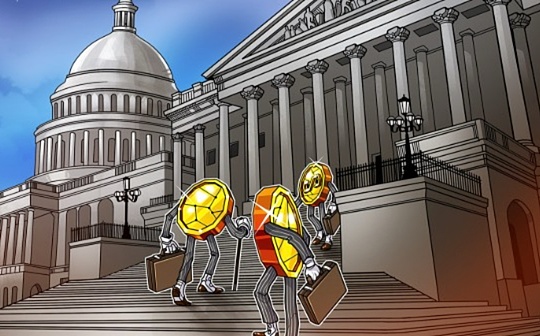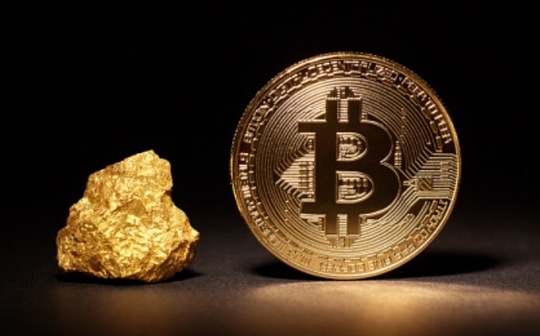Under the impact of the GENIUS Act, can Tether maintain his leading position?

転載元: chaincatcher
06/18/2025·5DSource:Can Tether's Dominance Survive the US Stablecoin Bill?
Organize & compile: Lenaxin, ChainCatcher
Introduction
- Stablecoin issuer Tether may soon face significant difficulties in the U.S. market, and its USDT may not meet the standards outlined in the Senate GENIUS Act.
- Legal experts suggest Tether may need to wait and see, but critics of the bill believe Tether will still find significant loopholes to attract U.S. investors.
Tether 's USDT is the largest stablecoin with market share in the world. The latest data shows that its anchored USD has reached US$ 155 billion. But analysis points out that Tether's current model may be difficult to meet the upcoming regulatory requirements of the United States. The U.S. Senate will finalize the GENIUS Act on Tuesday , which will be the first federal bill to enter the legislative process in the cryptocurrency field . The bill will then be submitted to the House of Representatives for consideration and will be signed and taken into effect by the President after reaching an agreement between the Senate and the House of Representatives.
Industry experts believe that Tether may face two options: adjust its business model to meet new US regulations, or withdraw from the US market to focus on overseas business. The clarification of the U.S. regulatory framework may drive industry scale expansion while affecting regulatory orientations in other jurisdictions.
The current draft legislation provides a path for foreign stablecoin issuers to enter the U.S. market, but the compliance procedures are relatively complex. According to the draft requirements, if Tether and other companies intend to issue tokens to US users, the following conditions must be met: first, they must be supervised by foreign regulators recognized by the United States, and their regulatory standards must be comparable to those of the United States; second, they may need to be registered and regulated with the US Office of the Comptroller of Currency ( OCC ); finally, they must hold sufficient reserves in the US financial institutions to ensure that they can repay the redemption needs of US customers when the issuer goes bankrupt.
The bill implements strict reserve management requirements for all regulated issuers: high liquidity assets such as cash and U.S. Treasury bonds must be held in the same value as circulating tokens. In terms of compliance mechanisms, the issuer must undergo audits from the certified public accounting firm every month, and the audit report must be signed and certified by the company's CEO and CFO , which means that executives will bear personal legal liability for the authenticity of information disclosure. It is worth noting that this regulatory framework sets more frequent information disclosure obligations for stablecoin issuers than traditional financial institutions.
In addition, according to the requirements of the bill, relevant companies must fully comply with the anti-money laundering regulatory regulations applicable to US financial institutions.
Tether doesn’t need to rush to change?
“If I were Tether , I wouldn’t go into the U.S. and say ‘I definitely want to be involved, I want to be involved’ unless I understand the regulations,” Steve Gannon, a digital asset client attorney at Davis Wright Tremaine , said in an interview with CoinDesk . “In terms of the need to comply with these regulations, the downstream impact on Tether could be a huge investment in time, energy, manpower, capital and technology.”
As one of the most profitable companies in the world, Tether is likely to continue to focus his strategic focus on emerging markets, which are relatively limited by the GENIUS Act. It is worth noting that Tether has recently moved its headquarters to El Salvador with loose cryptocurrency policies, and the country has not yet reached the international leading level in terms of the perfection of the financial regulatory system.
However, it should be noted that the US bill gives the Treasury Secretary a broad discretion, including evaluating the completeness of the regulatory system of each country and determining whether to grant regulatory immunities to specific companies.
“For example, the Trump administration could reach a reciprocal deal with the Bucker regime in El Salvador, where Tether is headquartered, allowing Tether to fully enter the U.S. market while avoiding the bill’s requirements,” according to a conversation released by the Senate Banking Committee senior Democratic Senator Elizabeth Warren, one of the bill’s main opponents .
" Even if El Salvador's current regulatory system is not yet perfect, it is hard to imagine that it can reach the same level of soundness and security as the United States. But under the current regulatory framework, the country may still receive reciprocity and enjoy standards comparable to the United States. "
Despite strong opposition from lawmaker Warren and his allies, they failed to stop many of their Democratic colleagues from supporting the bill. Supporters believe that this can at least establish a preliminary regulatory framework for the key area of stablecoins.
Critics pointed out that the bill still has obvious loopholes that could allow unregulated foreign stablecoins to circulate through the U.S. decentralized crypto platform.
"Unfortunately, the GENIUS Act has greatly expanded the stablecoin market but failed to address the basic national security risks it poses. The bill also has obvious loopholes that allow Tether , a notorious foreign stablecoin issuer, now based in El Salvador, to enter the U.S. market. "
Tether 's US Plan
However, Tether CEO Paolo Ardoino recently said that the company may not introduce its mainstream tokens into the U.S. market as a direct issuer, but rather consider issuing new stablecoins through local branches that are fully regulated by the U.S.
For Tether , the current regulatory requirements in the United States are even worse than the compliance standards. Although the company did not comment on the GENIUS Act, it has warned users in its updated terms of service this year: " If Tether fails to adapt to the ever-changing regulatory environment, it may face regulatory sanctions that will adversely affect the company's operations. "
Although the Senate legislative process marks a major policy breakthrough in the digital asset industry, uncertainty remains: the House will propose its own version, and the more critical supporting legislation —a regulatory framework for other cryptocurrencies—is still being formulated. Stablecoin issuers have difficulty obtaining clear compliance guidelines before Trump signs the bill and federal agencies introduce implementation rules.
Richard Rosenthal, head of Deloitte’s digital asset supervision business, pointed out in an email to CoinDesk : “ Foreign issuers face two major unidentified obstacles: one is the conditions that the law will ultimately allow them to serve U.S. customers; the other is how regulators will exercise discretion to control market access. The ultimate direction of this politically sensitive area remains to be seen. ”
But Furrer told CoinDesk that House members are unlikely to lower the compliance threshold for Tether — especially in the face of the company's allies in the Trump administration, former Cantor Fitzgerald executive who once managed Tether 's U.S. Treasury reserves , and Commerce Secretary Howard Lutnick .
"I don't think the House will force anything further against Tether ," Frell said. But he added that if big non-bank competitors like Google and Amazon start rolling out stablecoins, "the House may have the motivation to do more on this issue."
Competition cycle?
US company Circle and USDC have been waiting for an opportunity to seize market share of its main competitor Tether , and Circle is also planning to participate in the post-wave of US cryptocurrency regulation that some people expect. If institutional investors and traditional financial companies embrace digital assets as the industry wants, and Tether continues to be outside the U.S. financial system, it may miss the opportunity.
Earlier this year, the Securities and Exchange Commission (SEC) added some stablecoins to its growing list of cryptocurrency projects that the agency believes are out of its focus. However, there were some warnings to Tether in the agency's statement .
Although the regulator — which has been run by crypto-friendly leaders since Trump’s election — also excludes stablecoins from their securities jurisdiction, it notes in its footnote that proper stablecoin reserves “excluding precious metals or other crypto assets,” both of which are part of the Tether reserves. The GENIUS Act clearly states that “payment stablecoins are not securities or commodities, and the approved payment stablecoin issuer is not an investment company, but this is not yet a legal requirement.”
From a technical perspective, these considerations are not in Tether's current business model, because Tether deliberately avoids direct contact with American customers. At least for now.
Disclaimer
The content of this article does not represent the views of ChainCatcher. The views, data and conclusions in the article represent the personal positions of the original author or the interviewee. The compiler maintains a neutral attitude and does not endorse its accuracy. It does not constitute advice or guidance in any professional field and readers should use it carefully based on independent judgment. This compilation behavior is limited to knowledge sharing purposes only. Readers are requested to strictly abide by the laws and regulations of the region and not participate in any illegal financial behavior.

 jinse
jinse

